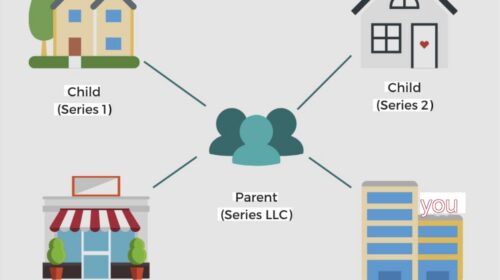Before we jump into the confusing and sometimes convoluted world of taxes, gains, and trusts; let’s start with something easy, you know, like introducing ourselves.
I’ll start!
My name is Ruben J. Martinez, and as many of you know I am RJM Lawyer.

Practice wise, I do a lot of things, but mostly, I do estate planning. It’s kind of my thing.
Everything from the trendy living trust, to the refined family trust, to the special needs, medicaid protection, pets, and life insurance trust. Woohoo, that was a mouth full.
Now…your turn!
Okay okay… OBVIOUSLY we’re dealing with some inherent challenges here, you know.. being that you can’t literally describe yourself; but is it impossible? I think not!
That said–I imagine, if you’ve taken the time to comb through my website and ultimately find your way to this blog, there are two things about you that are tenably true.
one: you have an insatiable desire for knowledge; and
two: you have really really good taste in authors (wink wink)
Okay enough of the theatrics, on with the show!
What does stepped-up-basis mean, and what is it anyway?
In simplest terms, stepped-up-basis refers to bringing real property (i.e. real estate) from its original purchase price to current market value.
So what and why should we care, right?
We care because of a little thing called CAPITAL GAINS! Capital gains is the fiscal difference (i.e. dollar dollar bill) of what you paid for a property, and what you’re selling it for.
Let’s look at a couple of examples.
Example 1: say you bought a house 10 years ago for 100k and you die without a trust. By operation of law your property would go through probate and albeit it would eventually get to your heirs; what happens when those heirs decide to sell the house?
Answer: They’ll pay capital gains.
How much? That depends on how much the house sells for.
If it goes for 500k, then your heirs would owe taxes based on 400k in capital gains, which as you might have guessed, isn’t exactly chump change.
Capital Gains Tax Rate
In California, capital gains are taxed like income. Thus, in our hypothetical, the 400k would be taxed at around 10% for a single non-married person. So how much is that?
Capital Gains Formula
400k X by 10%= $40k (taxes owed)
Now maybe 40k doesn’t sound like a whole lot, and your thinking, Ruben, why all the fuss!?
Well what if I told you that capital gain taxes could easily reach 80k, 100k, or 200k, in some cases, more. Now do I have your attention? I should.
But Ruben, that’s obscene, no one’s home is going to appreciate that much!
Really?–Are you sure about that?
Homework assignment
Next time your visiting grandma and grandpa ask them how much they purchased their house for.
If it was 50, 60, and in some cases 70 years ago, you better believe your lucky stars that its appreciated exponentially.
That said, if you’re the one that ends up inheriting your grandparent’s home, you could easily find yourself paying 100k in capital gains taxes. Ouch!
Alright alright, enough of the fear mongering, where’s the good news, right?
For this, let’s look at example 2.
Example 2: Here, let’s pretend you set up a living trust and put your house in it. Using all the facts from above, now what?
How much will your heirs owe in capital gains when they sale the house?
Answer: NOTHING. No, seriously, nothing.
But how? Simple.
The Stepped-up-basis
The method behind the madness
When you create a trust and put your house in it, not only are you saving your estate (all the property you leave behind at the time of your death) from Probate, but all of your real property gets stepped-up to current market value.
So that “cost basis” that was 100k in our example, is now thank you stepped-up-basis 500k (i.e. current market value). What does this mean?
It means that if your heirs turned around and sold your home immediately after inheriting it, they would (cue the drum roll) pay ZERO, I repeat zero dollars, in capital gain taxes.
W to the O..,WOW ladies and gentlemen!!
Closing Thoughts:
So there you have it! Not only does a trust pay dividends on the probate side, but on the capital gains side as well.
So remember, putting your house into a trust means that property is getting a stepped-up-basis, stepped-up-basis means less capital gains ( a lot less); and less capital gains folks means your heirs not the government are getting more of your estate.
Till next time my wide-eyed wonders, scalawags, and learned pupils… till next time!
-RJM LAWYER





Leave a Reply